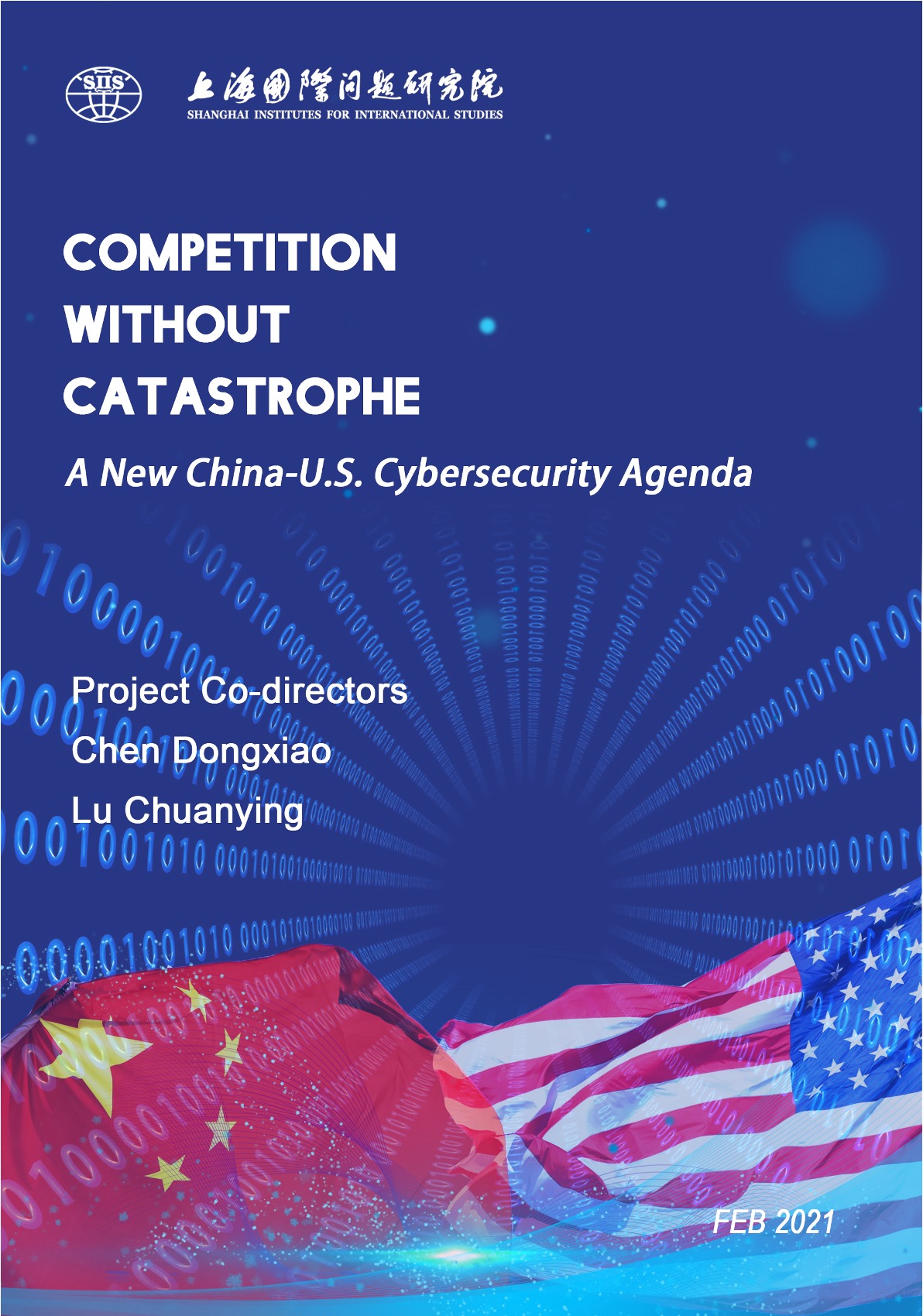An ambitious US plan to confront China's tech dominance with ramifications in Geneva
This is an onsite edited excerpt of the G|O Briefing newsletter
A strategic paper written by Silicon Valley and influential US political insiders about confronting China’s tech dominance might have an impact on International Geneva.
Can the current multilateral system and its institutions respond to the rise of China and its global dominance in tech? Should “techno-democracies” form an alliance against China and other “techno-autocracies”? How could the US, Europe, and liberal democracies around the world set the rules and shape the norms that govern the use of technology? … asks in substance a recent US working paper circulating in the Biden administration. Entitled “Asymmetric Competition: A Strategy for China and Technology,” the report, obtained by The G|O, is comprehensive in scope. We choose today to focus on the section most relevant to International Geneva called “Structures for the Future,” which addresses multilateralism.
In July of last year, a dozen highly influential, politically savvy, and connected tech leaders, academics, VC investors, and policy analysts gathered at the invitation of former Google CEO Eric Schmidt and former US State Department adviser Jared Cohen. The two men have known each other forever. Cohen, a Rhodes Scholar and a technology early adopter, was 24 when he was tapped by President George W. Bush’s former Secretary of State, Condoleeza Rice, to join the Policy Planning Staff at the State Department. In 2008, when Hillary Clinton succeeded her, she kept Cohen where he worked under Alec Ross, Clinton’s Senior Advisor for Innovation. With a carte-blanche from their boss and a deep understanding of the early promises of how social media could positively transform democracy—before we also discovered it could be for the worse—they were asked to bring diplomacy into the digital age.
Silicon Valley goes to Washington
In 2010, Ross and Cohen invited Schmidt and a few Silicon Valley entrepreneurs to a dinner at the State Department. “This new marriage of Silicon Valley and the State Department can, at times, seem almost giddy in its tech evangelism,” wrote the New York Times in a profile of Ross and Cohen. The bonds of that union between political insiders and tech have never been broken. After leaving government, Cohen went to head Google Ideas, the company’s own think tank. In 2013, Schmidt and Cohen co-authored The New Digital Age: Reshaping the Future of People, Nations, and Businesses. Today, Schmidt flies solo at Schmidt Futures, a philanthropic organization dedicated to the advancement of science and technology, and Cohen is CEO of Jigsaw, an independent unit at Google working on global security challenges. Both sit on numerous foundation boards.
“The United States is no longer the global science and technology (S&T) hegemon” it once was.
That almost ten years after penning their best-seller, their recent white paper is quietly (i.e., some of its recommendations are controversial) circulating within the Biden administration as it puts together its China policy, is thus no surprise. Connections last and matter. The National Security Team assembled by Joe Biden is made up of people who have worked together for a long time. From the president down, today, all agree that the US is in strategic competition with China and that anything from quantum computing to AI technology and bioengineering is at the core of that rivalry. The giddiness, however, is gone, replaced by a sense of urgency.
“The United States is no longer the global science and technology (S&T) hegemon” it once was, the authors write. The landscape has changed, they concede: “America’s technological leadership is fundamental to its security, prosperity, and democratic way of life. But this vital advantage is now at risk, with China surging to overtake the United States in critical areas.” Moreover, they claim the competition is “asymmetric” as “China plays by a different set of rules that allow it to benefit from corporate espionage, illiberal surveillance, and a blurry line between its public and private sector.” It is a familiar narrative in US tech and policy circles. It conveniently hides other factors, among them a doctrinaire approach to any kind of industrial policy—at least publicly—and the belief that innovation can only be fostered by the private sector. Exhibit A: the US’s 5G debacle.
The China Strategy Group, convened by Schmidt and Cohen, has articulated its response to the challenge posed by China around policy frameworks in three areas: “technological battlegrounds, functional capabilities for the competition,” and lastly, “structures for the future.” This last element makes this document a blueprint for shaping a Pax Americana for the digital age. It aims to do so by pushing back against China and articulating policies for the US to “out-compete China without inviting escalatory cycles of confrontation, retaliation, or unintended conflict.” “We have agency—not to change China, but to shape favorable outcomes for US interests: we should assume that we will continue dealing with China as we see it today and not expect to change China’s trajectory or overall approach to technology and economics, even if we can do more to pressure their choices and blunt their power,” the report notes.
The "T-12"
One of the central ideas advanced by the Schmidt-Cohen group is the creation of an alliance of “techno-democracies” regrouped in a new multilateral forum called the T-12. It has the backing of Secretary of State Blinken and National Security Advisor Jake Sullivan. The “techno-democracies” concept was first exposed in a Foreign Affairs essay last November by Cohen and Richard Fontaine, the CEO of the Center for a New American Security. Kurt Campbell, CNAS’s co-founder, is now head of the Indo-Pacific directorate at the NSC. Tony Blinken used elements of language from the paper during the first day of his confirmation hearing.
The T-12 is described as a “new plurilateral coalition of ‘techno-democracies’ to strengthen cooperation among like-minded countries; promote collective norms and values around the use of emerging technologies; and protect and preserve key areas of competitive technological advantage. To be most effective, the T-12 would be an international grouping, not a new, secretariat-laden international organization or an alliance with a mutual defense agreement. Rather, it would bring together key countries to coordinate responses to the types of technological questions that threaten the existing world order. A shortlist of countries that meet these criteria would include such members as the United States, Japan, Germany, France, Britain and Canada, the Netherlands, South Korea, Finland, and Sweden. India, Israel, and Australia are also logical candidates.”
The report also notes that “the United States cannot advance this agenda alone—in part because it lacks the resources or technology and in part because a unilateral approach alienates as much as attracts other countries. Progress needs to play out within a multilateral framework, not in an attempt to change China’s behavior, but to build critical mass to counter it.”
As the US administration actively and forcefully re-engages with Geneva and its multilateral institutions, its plan to counter China’s global rise in technology will clearly have an impact here. Recommendations for securing critical supply chains will guide US trade policies. If accepted, the controversial idea of creating “trust zones” that would, for instance, exclude countries using Huawei’s technology would have serious implications for all international standards development organizations (SDOs), such as the International Telecommunication Union (ITU). Noting that the “US tech competition with China plays out globally along numerous fault lines, including China’s Digital Silk Road, and in norm-setting institutions such as the United Nations,” one of the main assumptions of the document is that “our existing multilateral structures have become increasingly anachronistic and deficient.”
With the T-12, the group explicitly advances the creation of new political bodies working outside the UN system, a proposal justified by the authors by the fact that, in their eyes, “there currently exists no mechanism at the global level where technologically-advanced democracies can coordinate geopolitical strategy with one another and their private-sector counterparts. The establishment of new multilateral mechanisms for state parties and key technology infrastructure companies would create the conditions for a coherent strategy and renewed American leadership on the global stage.” While the T-12 would be permanent but informal, Schmidt, Cohen et alia also suggest setting up a permanent centralized “global body for standard-setting, an international agency (akin to OECD or WIPO) with broadly inclusive membership responsible for developing a common values platform on technology. The organization—which could be an outgrowth or initiative of the T-12—would identify important new standards and support capacity-building around laws, regulations, and bureaucratic infrastructure.”
On the technological front, one of the most controversial ideas being debated is the “decoupling” of certain sectors of the US and Chinese economies. The report also calls for a redesign across the US administration executive branch to steer “a new era of technological statecraft.” When asked about the document, a senior Western diplomat who spent several years in Geneva told The G|O: “One of the mysteries of the previous US administration policy was why it had alienated its allies in its effort to confront China. The re-engagement of the US is extremely positive. But, just on the T-12 question, I fear that such a coalition might totally lack legitimacy if it is anything else but informal.” Taking a harsh line towards China enjoys broad partisan support in the US. How much of the paper’s policy recommendations will eventually be adopted by the Biden administration, however, remains to be seen.
The “leak” of the report might also be a convenient way for Washington to take the temperature with its allies and partners. Beijing, no doubt, is also listening. One influential Chinese think tank just published a paper called “Competition without Catastrophe,” widely perceived by Washington as a first response.
-PHM



